Deciduous Fruits
Deciduous Fruit Sector
Thanks to its favourable location, climate and soil, Lesotho is an ideal place in which to invest in growing deciduous fruits for export to Southern Africa and more distant markets.
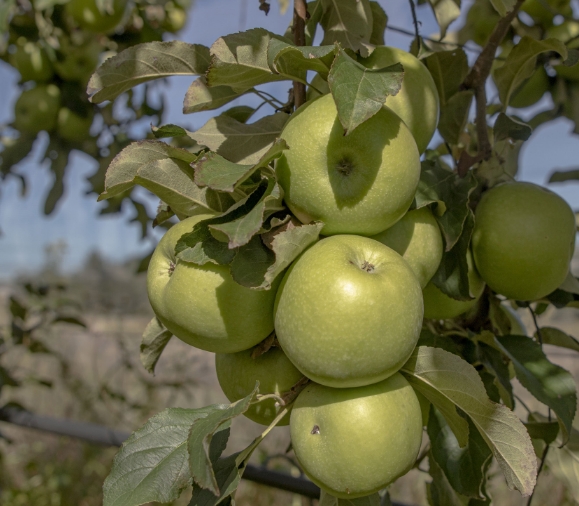
Introduction
This project centres on investing in growing deciduous fruit commercially in Lesotho and packaging the produce for export to neighbouring markets in the SADC region.
The main crops are apples, plums, apricots and peaches. There are also opportunities to invest in the related cold storage and packaging facilities. In the longer term, and subject to compliance with relevant health standards, Lesotho could export deciduous fruit to the USA and EU taking advantage of preferential trade agreements.
Deciduous fruit is already grown in the Mahobong area in the Leribe region of north west Lesotho, but other parts of the country are also suitable thanks to the favourable topography and climate.
Convenient
export to neighboring
markets in the
SADC region.
Strengths &
Opportunities
The Horticulture Training and Research Center at Mahobong provides classroom training for fruit farmers. The nearby Likhothola and Mahobong orchards are owned by local villagers and run both commercially and for demonstration purposes. Investors may have access to the demonstration plots.
Potential exists to convert existing structures into cold storage and packing facilities. Alternatively, the Lesotho National Development Corporation (LNDC) may be able to provide factory shells for rent. Reliable hydro-electric power is available thanks to the Lesotho Highlands Water Project.
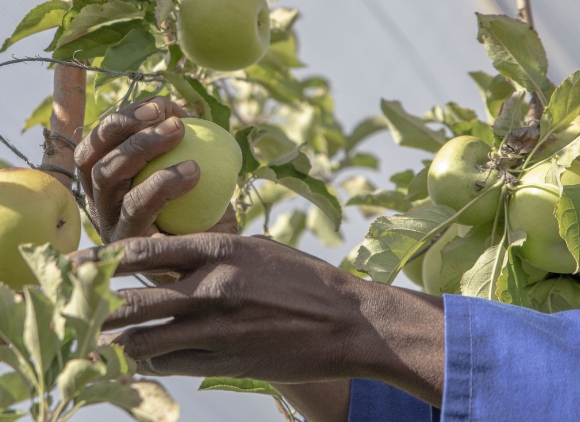
Markets
Lesotho’s membership of SADC and SACU allows Lesotho to export deciduous fruit to SADC countries without being subject to quotas or tariffs. The estimated market size is 300 million consumers. Lesotho’s geographical position and good road connections with South Africa permit short lead times and reasonable costs to transport produce from the Maseru area to Johannesburg, Cape Town and Durban (the port of dispatch for exports by sea). Lesotho has already trialled the export of fruit to South Africa to supply supermarket chains, with encouraging results.
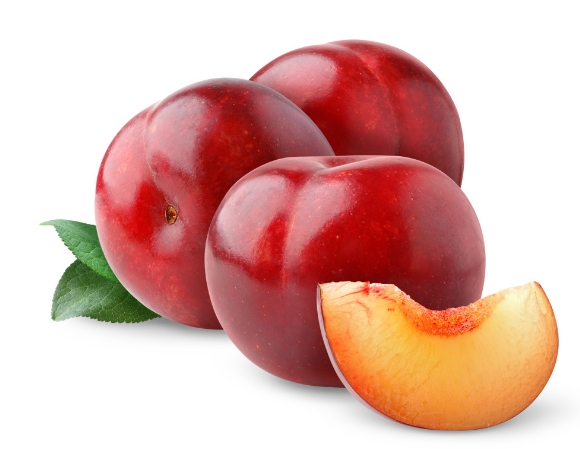
Apricots and peaches are AGOA-eligible, so they can be exported to the USA, provided that US health standards are met. That potentially opens up a market of 300 million consumers. Apples, apricots, peaches and plums may also be exported tariff-free to the EU under the EU/SADC EPA, again subject to compliance with relevant standards. The 27 EU member states have a population of around 450 million.
Beyond those markets Lesotho could also exploit its trade preferences under the Generalized System of Preferences to export to countries such as China, Japan, Australia, Canada and Turkey.
Fiscal Incentives
Corporate tax: 10% on profits from sales of agricultural goods produced in Lesotho Training: Cost of Lesotho citizens allowable at 125% for tax purposes
Withholding tax:
- 10% on service contracts with non-residents
- 25% on dividends distributed from income by resident companies to non-resident shareholders
- No withholding tax on dividends distributed to Lesotho residents
VAT:
- 15% on goods and services sold in Lesotho
- 0% on direct exports
Risk guarantees:
- Partial credit guarantee through the LNDC
- Tailor-made, agriculture-specific loan through the Post Bank of Lesotho
Specific incentives for the horticulture sector:
- Access to a Sesotho language technical training manual for local workers in on-farm and crop management
- Access to demonstration and crop pilot plots
- Facilitation support to identify and mobilize village level farmer engagement
- Access to technical data on historical crop performance
Support from the LNDC includes:
- Serviced industrial and commercial sites at competitive rentals
- Provision of industrial and commercial buildings at competitive rentals
- Financial assistance on a selective basis
- Investment facilitation services
- Assistance with permits and licenses
- Assistance with company registration
- Assistance with industrial relations issues
- Appraisal of investment projects
- Assistance with preparation of project briefs for the Environment Impact Assessment (EIA) Certification
The project would align with SDGs 1, 2, 8, 9, 10 and 15.
Financial Analysis
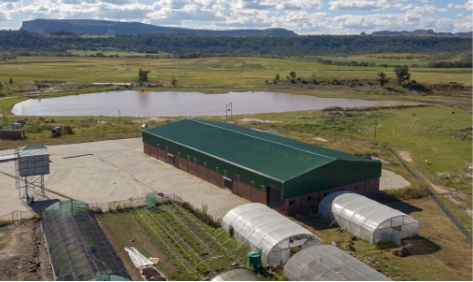
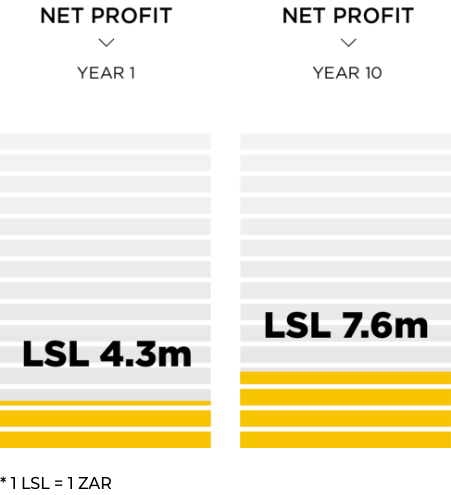
Financial Analysis
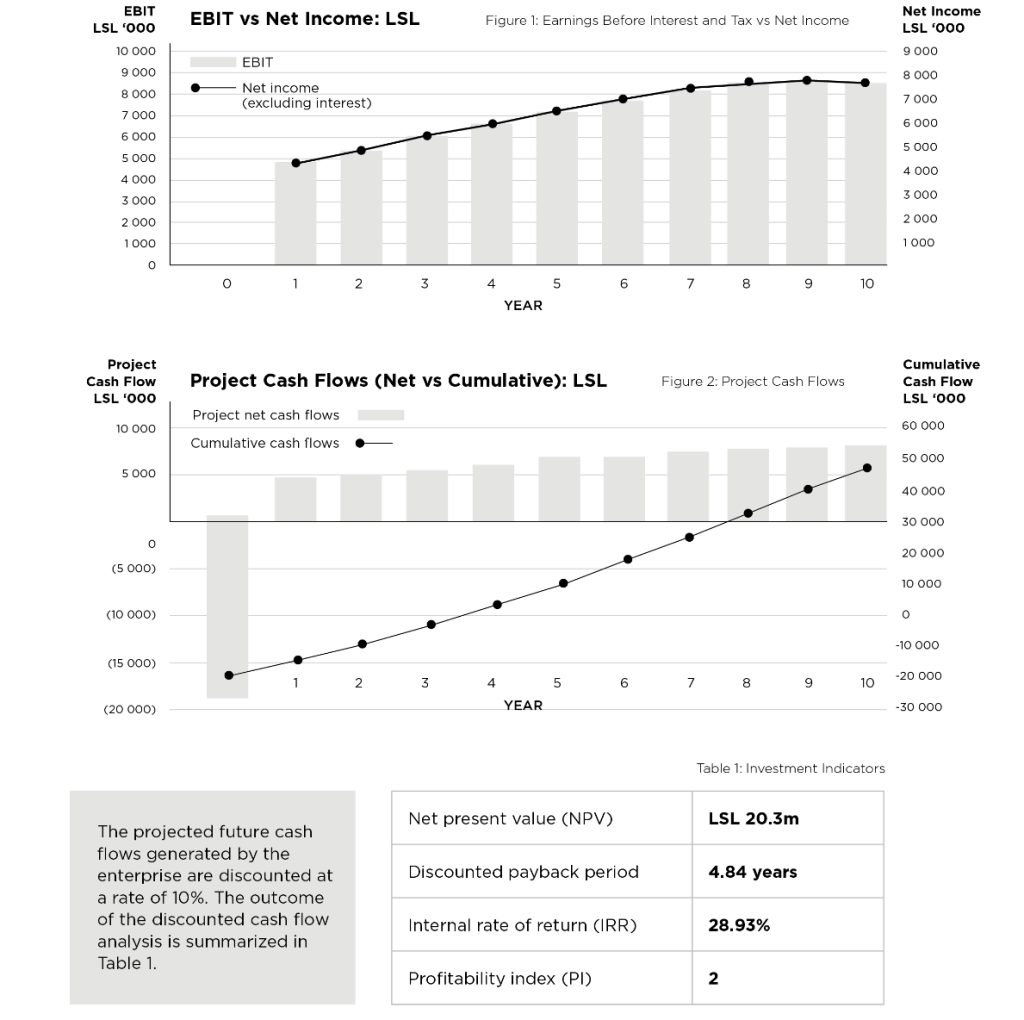
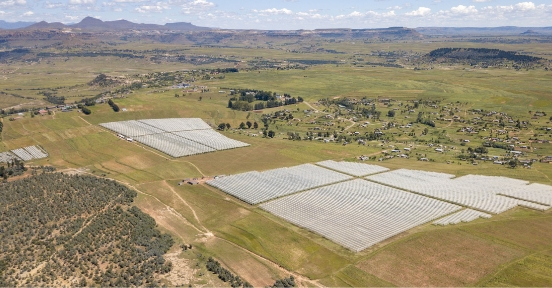
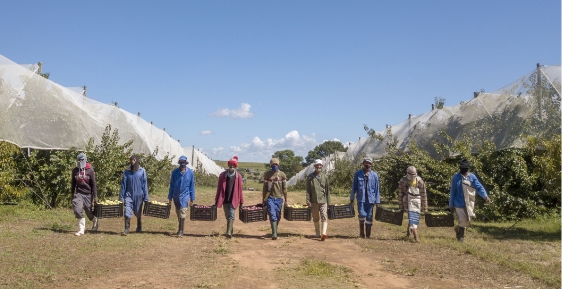
MS. PHOMOTSO MAJODINA
General Manager (a.i)
Investment and Trade Promotion Unit
Lesotho National Development Corporation
Email: [email protected]
MS. MAMPHAPHATHI MOLAPO
Officer: Investment Promotion, Agriculture
Lesotho National Development Corporation
Email: [email protected]
MS. MPHO MAPHIKA
Officer: Investment Promotion, Agriculture
Lesotho National Development Corporation
Email: [email protected]
